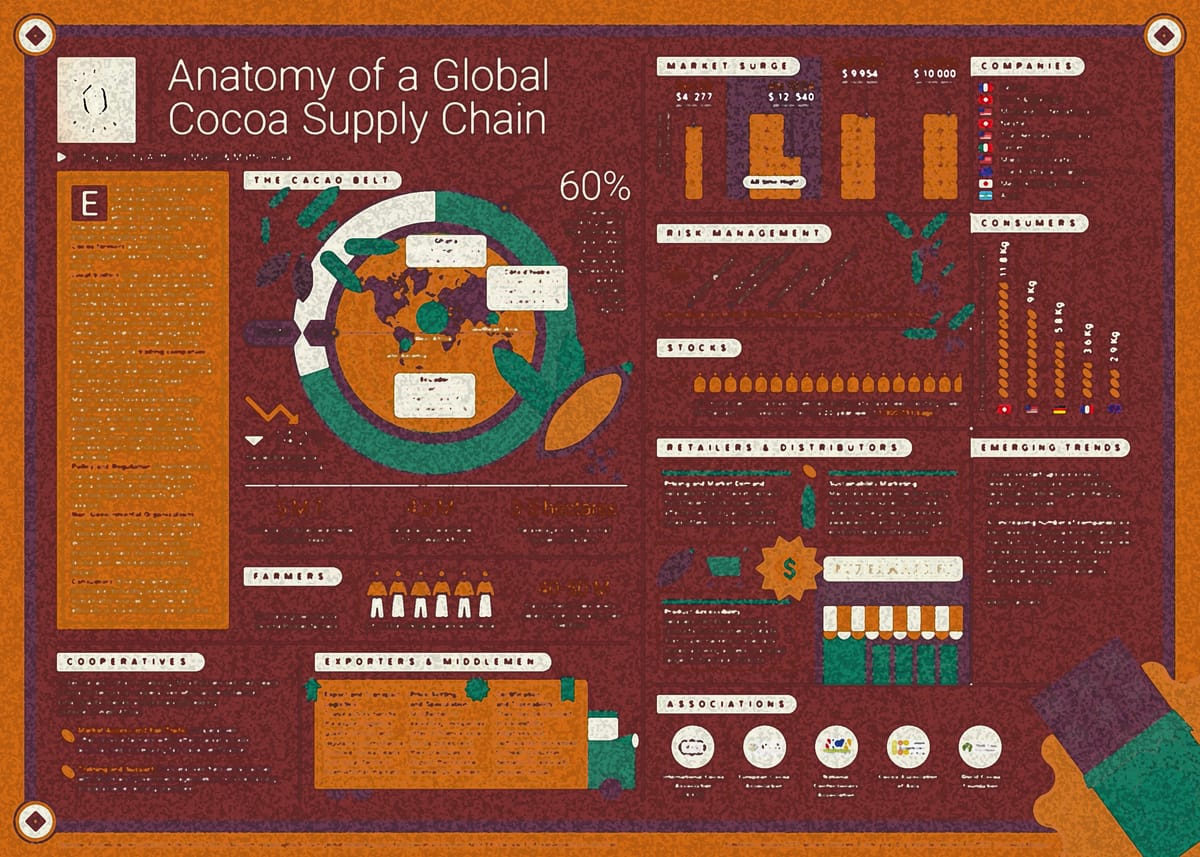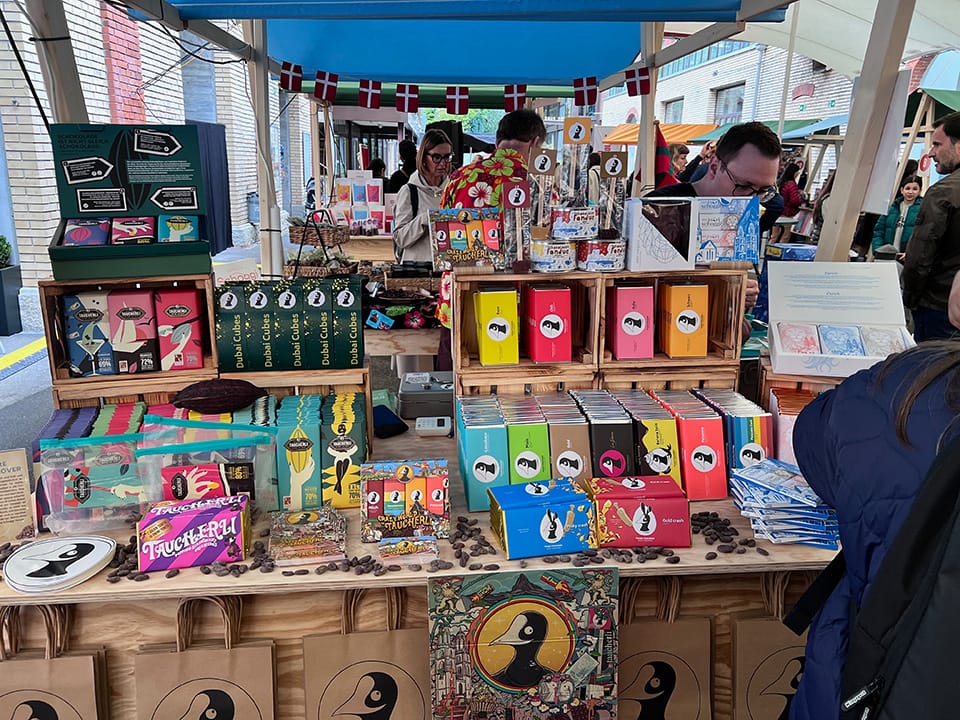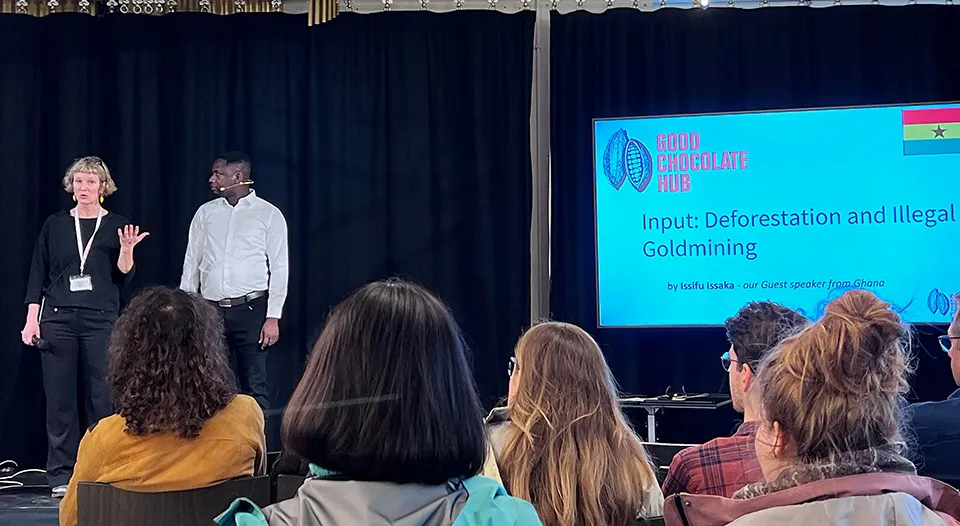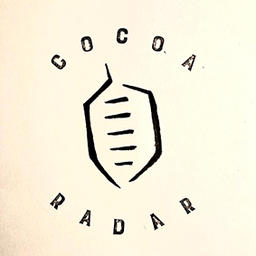Ghana’s cocoa sector, which is estimated to employ over 10 million people, directly and indirectly, is in crisis, but not one of wholly its own making.
From 2021 to 2024, cocoa production has roughly halved to approximately 500,000 metric tonnes, and while under investment in farms and farmers, along with climate change is a significant factor - there is another reason: illegal goldmining or ‘galamsey’.
Speaking at the Schoggifestival sustainability conference in Zurich at the weekend, Issifu Issaka, a cocoa farmer from the Ghana Cooperative Cocoa Farmers Association, said gold mining causes deforestation, pollutes rivers, and raises the cost of living for cocoa farmers.
He emphasized the need for cocoa agroforestry to mitigate deforestation and called for better revenue distribution to farmers and international regulation to prevent gold mining-induced deforestation.
He questioned why gold is not on the list of commodities on the European Union Deforestation Regulation (EUDR) when it is introduced at the end of the year. The EUDR is a law that prevents deforestation and forest degradation by prohibiting the import and selling products linked to such activities within the European Union (EU). It covers the cocoa, coffee, timber, rubber, and palm oil sectors.
“So in Ghana today, illegal mining is forcing deforestation. Now, the EU is bringing regulation into some of the mentioned commodities that cannot be placed in the EU market if it causes deforestation, so why not gold?”
Swiss gold connection
It was not lost on Issaka that he was speaking at a chocolate festival in Zurich to predominantly Swiss consumers - and he mentioned the city’s connection to the gold market.
“I know that Switzerland is one of the biggest gold-receiving countries, and I'm here to speak because I know something can be done if we talk of cocoa causing deforestation.”
He also called for international efforts to address illegal mining and support sustainable cocoa production.
“If you agree to support cocoa agroforestry, where we can plant trees, we can nuture the land, and at least, we'll be able to minimise the cost of deforestation.
“With cocoa, we can see that if we decide to practice cocoa agroforestry, we can get our forest back. But with gold mining, this is not the case. In gold mining, if you take the illegal mining activity, people take excavators and go to the land. They clear everything, dig the land, destroy water sources, rivers, everything.
Last man standing
“That is the result of illegal mining activity. The EU should also have a second look at their regulation. They should bring in good mining sensibility so that we can protect our forests. We know that when the last tree dies, the last man on earth will also die,” he said.


Sustainable cocoa markets and a CODEX
In a series of breakout sessions on productivity and access to sustainable cocoa markets, the issues with the price of beans and the supply deficits were addressed, which have turned the market on its head in the past 18 months.
Independent chocolate and cocoa advisor Marc Donaldson chaired the sustainability session and reported back findings which highlighted the ageing cocoa farmer population and the fact that young people, especially in West Africa, were under-motivated to take up cocoa farming because despite the high prices of beans, farmers receive very little income for their work.
He said there is an urgent need to rebuild the global marketing system with a focus on farmer training, fair implications of regulations, and increased supply chain communication, especially for farmers. “When you talk of sustainability, this should mean ‘farmer sustainability’,” he said.
There was also a call to establish a cacao sector's global CODEX, or rulebook.

Bean-to-bar on show
Along with the conference aspect of the event, the Schoggifestival also celebrates the joy of chocolate and supports Switzerland’s independent bean-to-bar movement, in which many of the companies are based in Switzerland.
Sunday was market day with roughly 30 stalls of quality artisan chocolate and other products from companies including Taucherli and Garcoa, representing some of the best Swiss chocolate from small-scale manufacturers.



